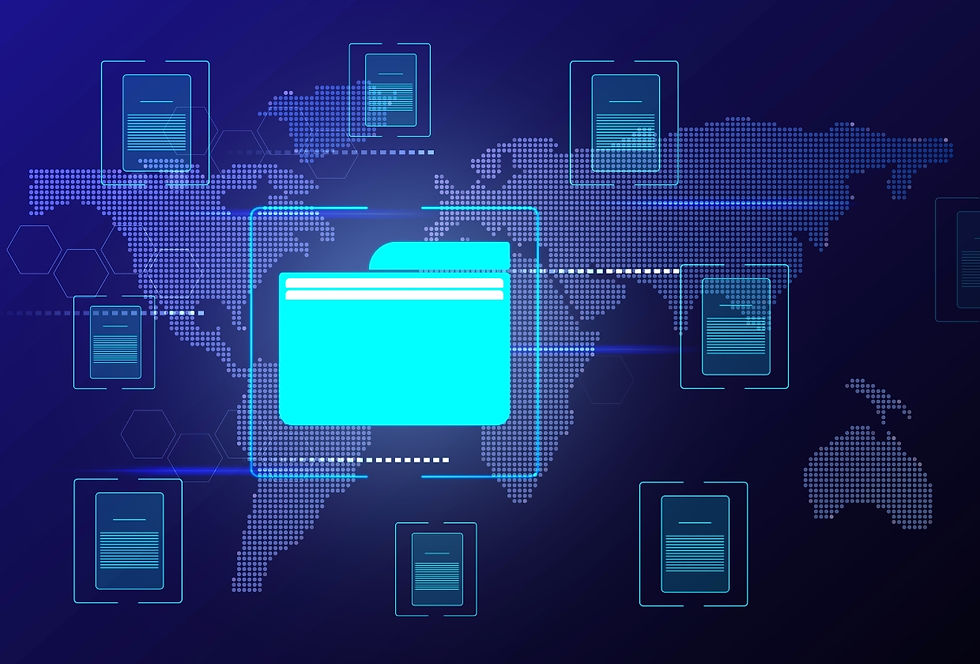Revolutionizing Enterprise Data with ChatGPT and Confluent Kafka Integration
- Károly Krokovay

- Feb 17, 2024
- 3 min read
Updated: May 13, 2025
In the fast-evolving landscape of technology, enterprises are constantly seeking innovative solutions to enhance efficiency and customer experience. The integration of ChatGPT with Confluent Kafka for real-time data streaming has emerged as a groundbreaking development, particularly for enterprise, banking, and corporate sectors.

Understanding the Integration
The integration of ChatGPT with Confluent Kafka bridges the gap between sophisticated AI-driven communication and efficient data management. ChatGPT, known for its advanced natural language processing and conversational abilities, complements Kafka's robust capability in handling real-time data streams. This combination offers businesses a powerful tool for processing and analyzing vast amounts of data instantaneously. It enables delivering intelligent, context-sensitive responses, crucial for customer interactions, data-driven decision making, and personalized service offerings. This integration represents a significant advancement in how businesses can leverage AI and data streaming to gain real-time insights, making operations more responsive and customer-centric.
Impact on the Enterprise Sector
The integration of ChatGPT and Confluent Kafka holds transformative potential for the enterprise sector. Beyond automating customer service inquiries and analyzing market trends, it opens new avenues for real-time business intelligence and operational efficiency. Enterprises can harness this technology to dynamically adjust marketing strategies, forecast demand more accurately, and enhance the overall customer experience. For instance, a retail chain could implement this integration to analyze customer feedback in real time, enabling immediate adjustments to product offerings or marketing campaigns. This results in a more agile and responsive business model, which is essential in today's fast-paced market environment.
Transformation in Banking
In the banking sector, the integration of ChatGPT with Confluent Kafka is revolutionizing how banks approach security and customer service. It significantly bolsters fraud detection capabilities by analyzing transaction patterns in real-time, quickly identifying and alerting on any unusual activities. This immediate response is crucial in preventing financial fraud and maintaining customer trust. Furthermore, this technology empowers banks to offer highly personalized customer service. By analyzing transaction histories and account information, banks can provide tailored financial advice, suggest suitable banking products, and efficiently resolve customer inquiries. This level of personalization and security is transforming the banking experience, making it safer and more customer-focused.
Corporate Applications
The integration of ChatGPT with Confluent Kafka offers numerous applications for corporations beyond supply chain management. In HR, it can transform employee engagement and feedback analysis, providing real-time insights into workforce satisfaction and productivity trends. In finance, this integration can streamline risk management by analyzing market data in real time, enabling quicker, more informed financial decisions. It also enhances R&D processes by enabling real-time data analysis from various research initiatives, speeding up innovation cycles. This integration thus plays a crucial role in elevating efficiency and strategic decision-making across various corporate functions.
Challenges and Considerations
While the integration of ChatGPT with Confluent Kafka offers significant benefits, it also presents several challenges. Ensuring data privacy is paramount, especially when handling sensitive customer information. Enterprises must navigate complex data protection regulations and implement robust security measures. Additionally, managing the sheer volume of data efficiently is crucial to avoid system overloads and maintain performance. This often requires advanced data management strategies and infrastructure. Moreover, there's a growing need for skilled personnel who can manage and optimize these sophisticated systems, which can be a hurdle in terms of training and resource allocation. It's essential for businesses to address these challenges proactively to fully leverage the potential of this integration.
Future Outlook
The future of the ChatGPT and Confluent Kafka integration is highly promising, with advancements in AI and machine learning poised to open up even more sophisticated applications. We can anticipate developments in areas such as predictive analytics, deeper personalization, and more nuanced understanding of customer behaviors and preferences. This evolution will further empower businesses to make quicker, more accurate decisions based on real-time data insights. Additionally, we might see this technology being integrated into more complex systems, like autonomous decision-making processes and advanced analytics, reshaping the landscape of business intelligence and operational efficiency.
Conclusion
The integration of ChatGPT with Confluent Kafka significantly impacts the digital transformation landscape for businesses. This synergy of real-time data processing and AI-powered communication is more than a technological advancement; it's a strategic asset in today's competitive market. It equips businesses with tools for deeper customer engagement, data-driven decision-making, and operational agility. As we look ahead, this integration is set to become a cornerstone in the evolving digital ecosystem, helping businesses not only to adapt but also to innovate and lead in their respective industries.




Comments